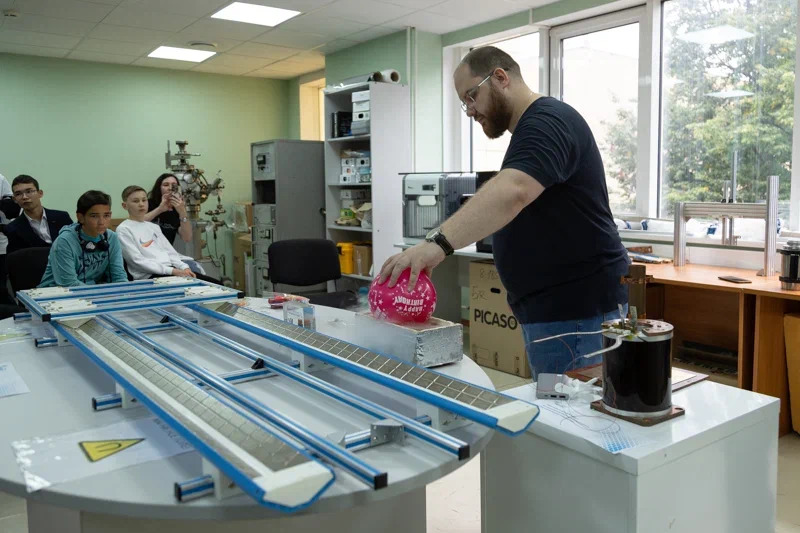Russian scientists today not only engage in science, but also actively talk about their achievements, and in a language understandable to a wide audience. This conclusion was reached by the Institute of Statistical Research and Economics of Knowledge at the Higher School of Economics, having surveyed 577 university rectors and heads of research institutes.

Dmitry Abin from the LaPlas Institute of the MEPhI demonstrates the capabilities of superconductors at the Vector.Fest festival
The popularization of science today is reaching a new level. For example, scientific developments are increasingly being used in the writing of textbooks. There is an increase in the number of popular science events: festivals, exhibitions and excursions on scientific topics are being held, and information about scientific achievements is being more widely disseminated in the media. The number of electronic popular science publications is growing noticeably.
In addition, half of those surveyed are confident that the trend towards popularizing science will continue in the future.
Commenting on the survey results, Rector of MEPhI Vladimir Shevchenko said: “All leading universities in the world include various humanities disciplines in their training programs for modern scientists and engineers. In particular, the ability to clearly communicate your results is an important part of the humanities component of science education. Scientists and engineers today exist in a world characterized by an abundance of information, and this places high demands on the project manager's ability to present himself correctly, of course, in a good way. An engineering or scientific project must not only be well conceived and well executed, it also requires an inspiring story about it - as part, if you will, of marketing promotion. Of course, the increase in the number of Russian scientists seriously involved in the popularization of science is a very good sign, and, of course, this requires mastering the appropriate skills.”





